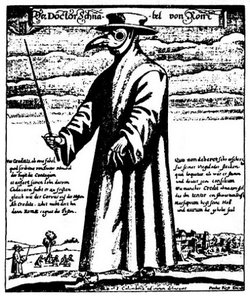Was it really so peaceful before 1914?
The Society loves to claim there was an unprecedented amount of peace prior to 1914 and that WWI was a complete shock to the world when it began. Yet history claims otherwise:
1871 Otto von Bismarck - Lord High Chancellor of Germany
declared that a "Great War" would come one day.
Quoted by I.F. Clarke in Voices Prophesying War 1763-1984 (London:Oxford University Press, 1966), pp66,67"Black and White" English Publication
"The air is full of rumors of War. The European nations stand fully armed and prepared for instant mobilization. Authorities are agreed that a GREAT WAR must break out in the immediate future, and that this War will be fought under novel and surprising conditions. ALl facts seem to indicate that the coming conflict will be the bloodiest in history, and must involve the momentous consequences to the whole world. At any time the incident may occur which will precipitate disaster."
From 1871 onwards the major European powers prepared for the great war that Bismarck had said would come one day. And for close on half a century, while the general staffs and the ministries argued about weapons, estimates, and tactics, the tale of the war-to-come was a dominant device in the field of purposive fiction ... The period from the eighteen-eighties to the long-expected outbreak of the next war in 1914 saw the emergence of the greatest number of these tales of coming conflicts ever to appear in European fiction.
Was WWI the worst war the world had ever seen? Was it really the first world war?
The Thirty Years War 1618-1648 killed 3 million soldiers and 4 or 5 times that many civilians, 30%-40% of the entire German population died, and that was a world war.
The Manchu-Chinese War in 1644
killed 25 million.
The Napoleonic Wars, 1792-1815, 5-6 million.
Taiping Rebellion,
20-30 million.
Tamerlane in the 14th century.He went through whole countries, slaughtered whole cities, and whole districts if anybody so much as raised a sword against him he killed the whole city.
Natural Disasters
I found this quote on a Judicial Committee transcript on the web and would love to get more evidence of this:
"As for famines and pestilence, that's no contest because this century has had far fewer famines and pestilence compared to previous times when there were famines many years and pestilence killed almost half the babies born. I came to realize that you couldn't prove the time of the end by statistics alone."
Does anyone have any more references or sources for this kind of stuff? I pulled these from various resources around the Internet.
I would love to have more.
Thanks in advance!
-ithinkisee
 "Realizing what a deadly disaster had come to them, the people quickly drove the Italians from their city. But the disease remained, and soon death was everywhere. Fathers abandoned their sick sons. Lawyers refused to come and make out wills for the dying. Friars and nuns were left to care for the sick, and monasteries and convents were soon deserted, as they were stricken, too. Bodies were left in empty houses, and there was no one to give them a Christian burial."
"Realizing what a deadly disaster had come to them, the people quickly drove the Italians from their city. But the disease remained, and soon death was everywhere. Fathers abandoned their sick sons. Lawyers refused to come and make out wills for the dying. Friars and nuns were left to care for the sick, and monasteries and convents were soon deserted, as they were stricken, too. Bodies were left in empty houses, and there was no one to give them a Christian burial."